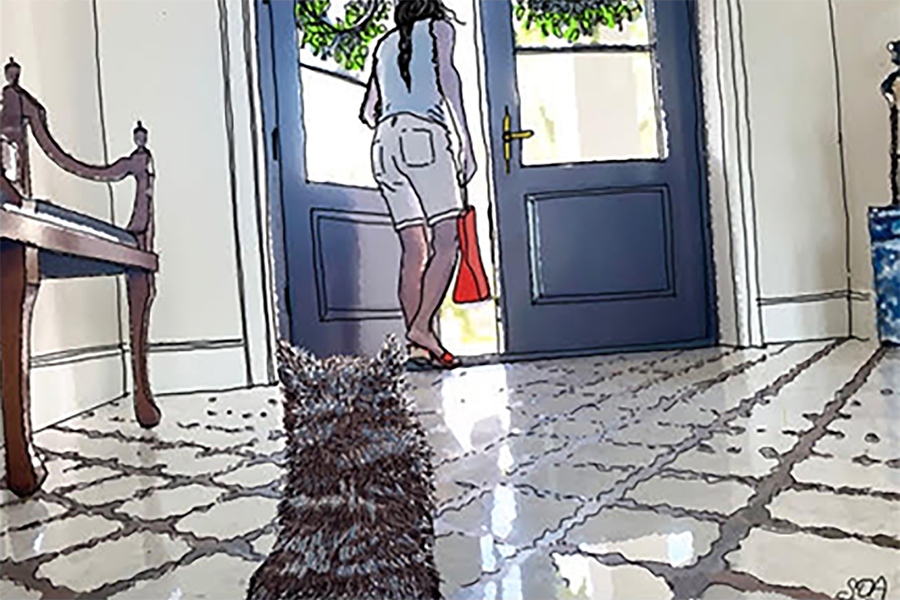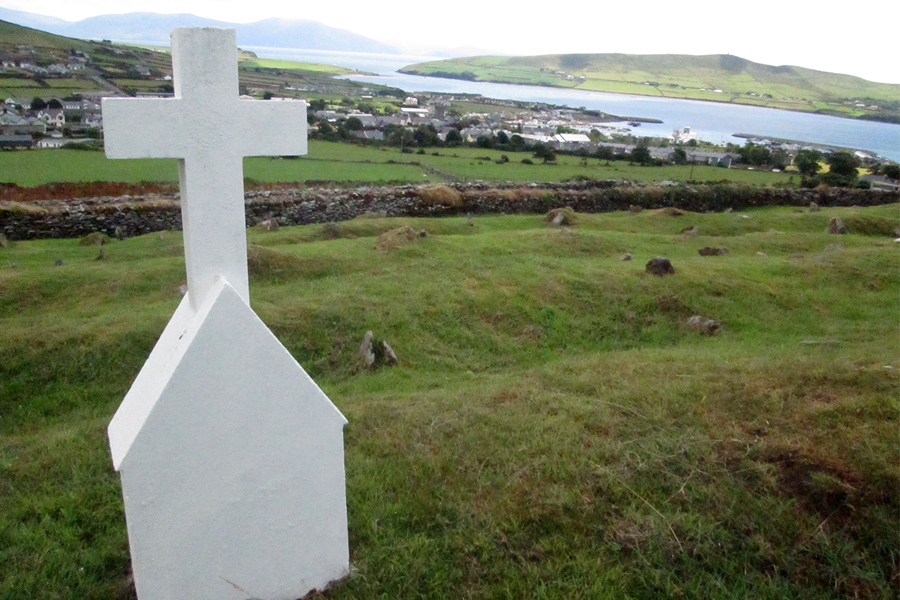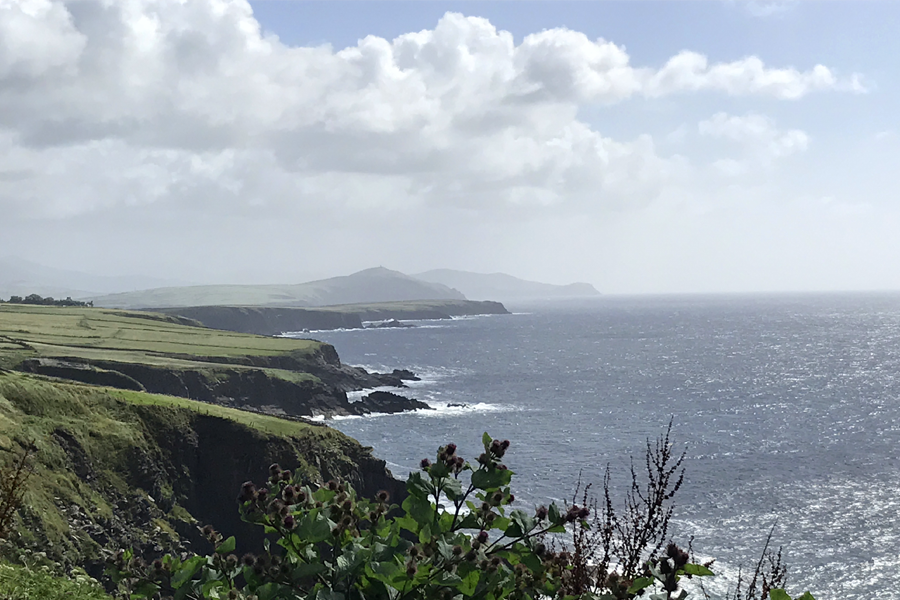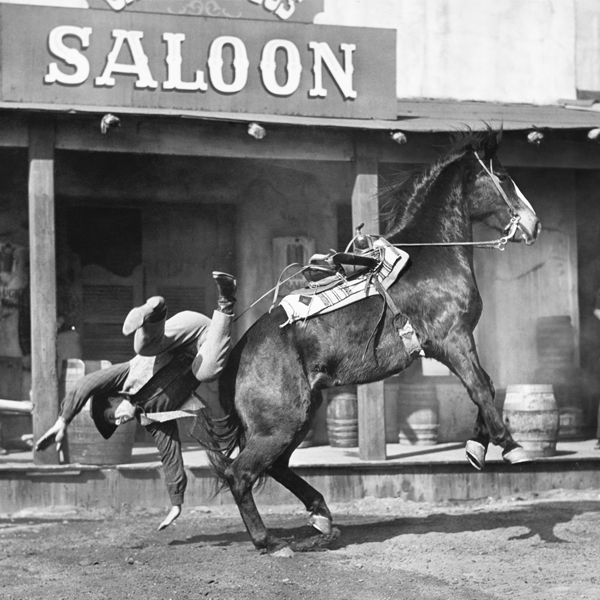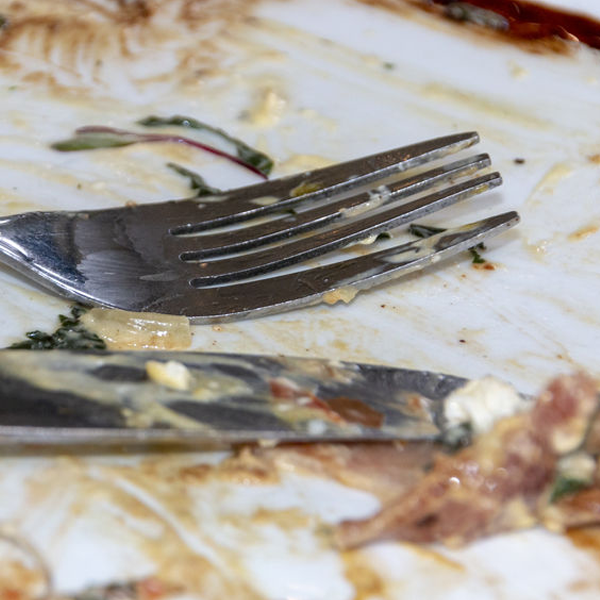Emerald Blog: My Father’s Brogue

Every summer, Bay Path University’s MFA program in Creative Nonfiction writing offers a weeklong Writing Seminar based in Dingle, a town nestled on the Atlantic coast on the western shore of County Kerry, Ireland. Each day throughout the week, Seminar Facilitator Suzanne Strempek Shea gives participants a prompt to encourage writers to investigate new ideas and topics in their writing. During August 2020, we’ll publish our Emerald Blogs to showcase the diverse work developed from responses to Suzanne’s prompts.
From Suzanne Strempek Shea
Kim Livingston MFA ’20, a four-time attendee of our Summer Writing Seminar in Ireland, wrote “My Father’s Brogue” there in 2016 on the prompt:
The Welcome:
Write about a welcome or parting that is particularly memorable to you.
Kim captures the joy of being seen, recognized, acknowledged and named, especially when you’re looking for a fraction of any of that.
My Father’s Brogue
by Kim Livingston
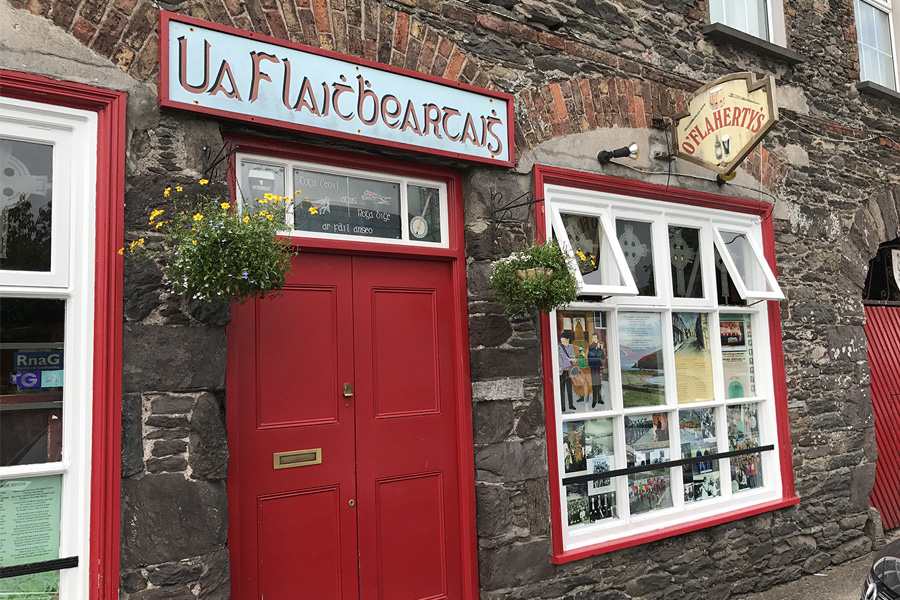
In the middle of my second trip to Ireland for an annual writing seminar, I sat in O’Flaherty’s Pub with Marie, a friend from the program, enjoying some good music and one pint before getting back to the guesthouse. I told Marie about my Irish roots and how, the year before, I’d typed “Rainsfords in Limerick” into a search engine and discovered a guy in his early thirties who looked like a younger version of my brother. I told her how I’d contacted the guy through Facebook, hoping to meet him and his family while I was in Ireland.
My dad’s father was born in Limerick, Dad’s mother 60 miles away in Tralee. They met each other in Chicago around 1917 and raised six boys, but by the time I began college, all of them were dead—the grandparents before I was born, Dad when I was 13. Naturally, when I heard about a writing seminar in Dingle, Ireland, and learned that the bus from the airport would stop in two places, Limerick and Tralee, I felt an ancestral tug.
Through the 1930s and ’40s, when my father was young, his parents often hosted Irish immigrants finding their way in the Windy City. These relatives and friends, even relatives of friends, stayed in the two-flat on Roscoe for months at a time while working toward places of their own. Since Dad was the youngest, it was always his bed given in hospitality, Dad migrating to the upstairs porch, “hotter than hell,” but where he’d lie awake on the sheet-covered sofa listening to the adults reminiscing below, their stories of Ireland growing to legend in his mind. Decades later, he’d describe those nights to me and my brother in our kitchen on Saturday mornings, the Clancy Brothers singing out of our windowsill radio.
The Facebook guy and I messaged each other a few times. He said his uncle lived in a farmhouse that had been owned by Rainsfords for many generations—probably where my grandfather lived as a child. He could take me there to meet the family, he said. We arranged to meet in Limerick.
For years, assisted by lots of cheesy movies, I’d dreamed of Ireland welcoming me home: In a dark, crowded pub, the locals at first mistake me for a common tourist, but an old guy in the corner keeps staring. “There’s sometin’ about ye,” he says, eyes twinkling. Whispers throughout the place grow louder with budding recognition. I remind them of a dear friend from long ago. They knew my grandparents! Everyone gathers ‘round me and starts dancing a jig. I’m wearing a bustier and a big swishy skirt, my hair redder than ever, with ruddy cheeks to show how feisty I am. I grab the microphone and belt out “Danny Boy” in a brogue so convincing even the barmaid has tears. Then my own relatives, having heard the news, burst into the pub. “Just like your granny!” they cheer, recognizing in me her unique beauty and plucky character. It’s clear to everyone that I really, really fit in here.
In my actual life, the Facebook guy never showed up. I waited in the Limerick bus station, but he had car trouble or something. I sensed that though he didn’t want to be impolite, he wasn’t interested in connecting with a stranger from America.
It was a silly dream. That old man in the corner would’ve been at least 130 years old. Also, I can’t sing. And I’m an introvert. I have cousins an hour from my home that I haven’t talked to in decades.
I get that it’s trite to make this pilgrimage yearning for a connection to the motherland, to my family, my father. I have no real claim to this place, and with an Irish diaspora of 34 million in the U.S., the whole idea is so terribly cliché.
But John Joseph Rainsford was my grandfather, Hanna Fitzgerald my grandma. They walked these Irish streets, played in the yards. They raised my father. Even though I never knew them, they were mine.
So Marie and I were in O’Flaherty’s, listening to a fiddle-and-flute tune, finishing a pint. She’s a good one for striking conversation with strangers, and she did just that with a young Galway couple. In the process of our getting to know them, Marie mentioned that my family was from Ireland. The man studied my face for a moment and said, “Limerick?”
I was confused. We hadn’t mentioned anything about Limerick. “Why do you say that?” I asked.
“Oh,” he said, “You look Limerick.”
I look Limerick. I almost hugged him.
Dad would have liked Ireland. I think of him when I’m there, as my taxi driver tells joke after joke, twisting along narrow roads from the airport. As the old man minding a tiny shop on Main Street winks when I duck in from the dreary rain and says, “Gorgeous day now, isn’t it?”, the lilt of his voice comforting me on a lonely afternoon.
My father’s brogue was imitation and occasional, always well timed for a punch line. In the bar after work, the laughter of his friends around him would rise and fall at his command. They called him “Denny the Irishman,” and that’s when he was happiest.
In the pink, freckled faces I pass on these old Irish streets, I see him. I see my grandparents, my uncles, my brother. And, yes, in some of them, I see myself.
About the Writer
Kim Rainsford Livingston teaches English at Waubonsee Community College and lives in the Chicago suburbs with her retired husband and too many pets. Now that her three kids are grown, she’s getting back to writing, happy for the new adventures and friends she found while earning an MFA at Bay Path University.
Write with us in Dingle next year, July 31 to Aug. 8, 2021. Contact sshea@baypath.edu for full information.
We welcome submissions to Multiplicity Blog (nonfiction prose of 1,000 words or fewer, poetry, and photography) all year. We also accept submissions of longer nonfiction works (up to 5,000 words), poetry or photography for the Fall 2020 issue of Multiplicity Magazine: At Work. Magazine submissions close on September 25, 2020. More details here.



